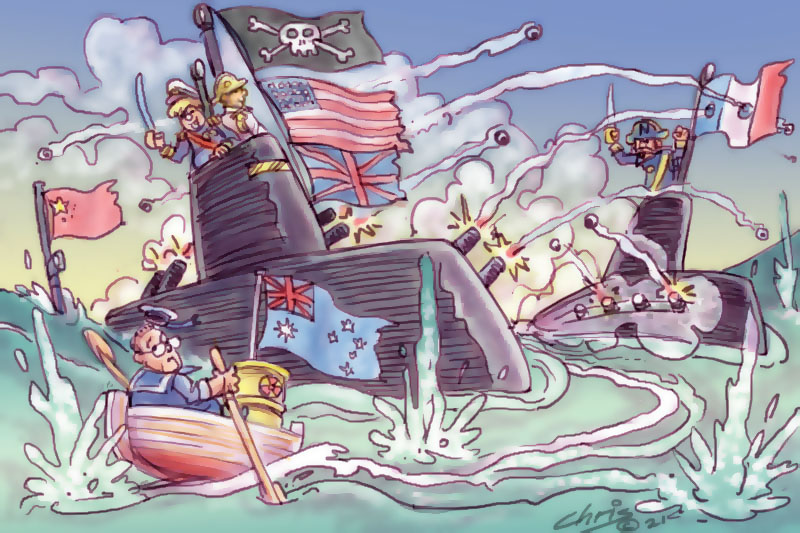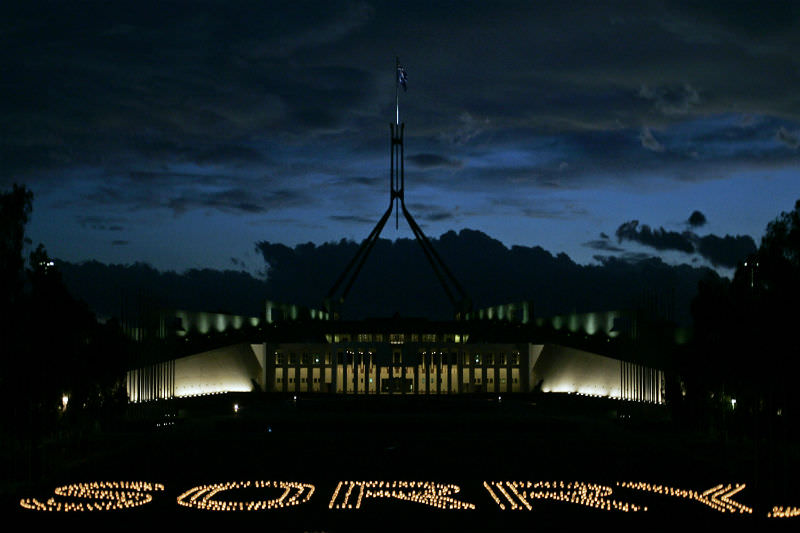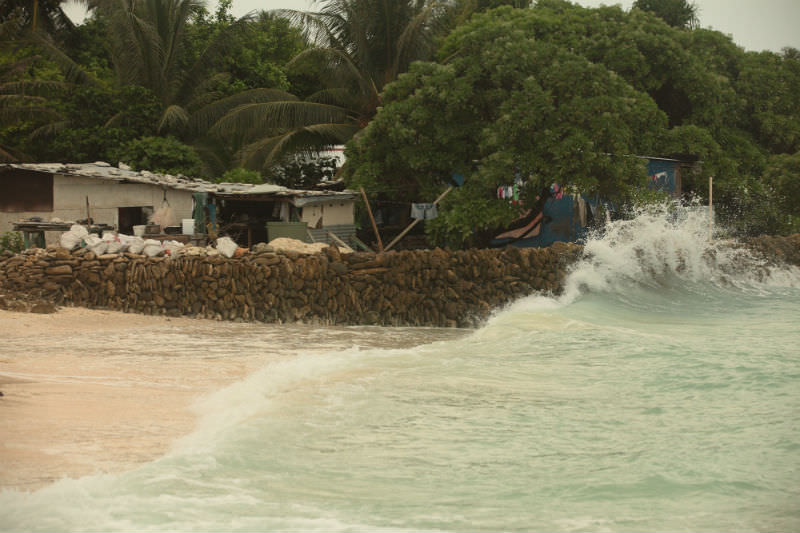Keywords: Rudd And The Sin Of Overwork
There are more than 24 results, only the first 24 are displayed here.
Become a subscriber for more search results.
-

AUSTRALIA
- Max Jeganathan
- 24 March 2025
Amid rising hate speech and tighter laws, something deeper festers. In a culture wired for outrage and shaped by tribal algorithms, we’re learning not just to disagree, but to despise. What happens when identity is built on enmity, and public debate becomes less about ideas and more about who we’re against?
READ MORE
-

AUSTRALIA
- Kerry Murphy
- 04 January 2024
Throughout recent decades of Australian history, the stance every government has taken on asylum seekers has reflected the shifting political landscapes and challenging humanitarian issues that have continually shaped Australia's response to those seeking refuge.
READ MORE 
-

AUSTRALIA
- Peter Mares
- 21 September 2023
2 Comments
Will the Housing Australia Future Fund make a dent on Australia’s housing crisis? After a political tug-of-war, the government's ambitious $10 billion Housing Australia Future Fund (HAFF) has passed parliament, promising tens of thousands of new homes. But with over 170,000 households on social housing waiting lists and a skyrocketing rental market, the question remains: is the HAFF enough?
READ MORE
-

AUSTRALIA
- Kerry Murphy
- 28 July 2023
How has Australia's asylum seeker policy changed over the past thirty years? The approach of every government has reflected the shifting political landscapes and challenging humanitarian issues that have continually shaped Australia's response to those seeking refuge.
READ MORE 
-

INTERNATIONAL
- Max Jeganathan
- 22 June 2023
2 Comments
Encompassing the indictment of Donald Trump, the Russia-Ukraine conflict and Australia's Indigenous Voice referendum, the quest for justice has evolved into an abstract and bitter fight, obscuring our common humanity, and requiring us to find a restorative, forgiving route.
READ MORE
-

ARTS AND CULTURE
- Barry Gittins
- 20 December 2022
1 Comment
When we reflect on how best to live with the consequences of our shared, bloodied history, The Australian Wars calls for a counter-narrative; a re-positioning and re-phrasing of what has brought us to this point in our oft-stalled journey towards reconciliation.
READ MORE 
-

AUSTRALIA
- Frank Brennan
- 17 August 2022
2 Comments
We need to be able to do more than simply give notional assent to the Uluru Statement. We need to be able to contribute to the hard thinking and difficult discussions to be had if the overwhelming majority of our fellow Australians are to be convinced of the need for a Voice in the Constitution.
READ MORE 
-

INTERNATIONAL
- Max Jeganathan
- 15 August 2022
3 Comments
Despite a post-pandemic bull-run, both the national and international economy are now stalling. Interest rates are going up. Markets are going down. Inflation seems unstoppable. While many factors are to blame for the rising cost of living, a catalysing force continues to be our response to the war in Ukraine.
READ MORE 
-

INTERNATIONAL
- Binoy Kampmark
- 20 September 2021
31 Comments
Defence is a costly business, and few branches of defence are more costly, and questionable, than a country’s submarine capability. Since 2009, Project SEA 1000, the name for Australia’s Future Submarine program, has fascinated strategists and defence planners. In 2016, this resulted in an agreement with the French submarine company DCNS (now called Naval Group) to build an un-designed attack class vessel. Other contenders in the competitive tender — Germany and Japan, for instance — had existing models.
READ MORE 
-

ECONOMICS
But although the Coalition will never admit it, it looks suspiciously like there has been some bipartisan institutional learning about how to manage financial crises. If you want to stimulate an economy in times of crisis put the money directly into the economy, either into people’s pockets or to businesses who then pass it on to workers.
READ MORE 
-

AUSTRALIA
- Andrew Hamilton
- 12 February 2020
5 Comments
In the Apology to the Stolen Generations the Australian Government spoke on behalf of all Australians in recognising that it acted wrongly in removing Indigenous children from their parents. It recognised also that the reason for the removal was the disrespectful claim that its targets were defined, not by their shared humanity, but by their race. This disrespect caused lasting damage to the children and families.
READ MORE 
-

INTERNATIONAL
- Alana Schetzer
- 19 September 2019
8 Comments
This tiny nation isn't just at risk of physically disappearing because of rising sea levels. It's also at risk of disappearing politically and culturally. Kiribati's shaky future raises the unprecedented question of what could happen to its sovereignty if — or when — it physically disappears. Can a nation still exist without an actual country?
READ MORE 